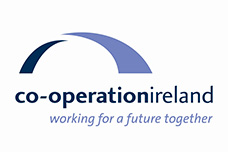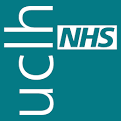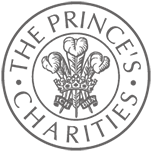A revolutionary cancer centre modelled on the best American hospitals is being planned for Britain to treat thousands of NHS patients a year.
Patients needing life-saving chemotherapy could receive the drugs from specialist nurses while sitting in a comfortable lounge, and return home within a day instead of having to spend days or weeks on a ward, under plans being developed by NHS chiefs working with property developer Christopher Moran.
Mr. Moran, who has seen friends forced go across the Atlantic for ‘gold standard’ cancer treatment, is convinced that the British public should be able to enjoy the same quality of care and is spearheading the effort to raise £30 million for the new centre.
Experience in America has shown that when patients are treated in more natural environments, they feel able to control their lives, suffer less depression, have better survival rates and feel better able to comply with the treatment.
The ambulatory centre would be attached to University College London Hospitals (UCLH) Trust in London, serving a population of around two million people.
The planners want patients to be able to drive into an underground car park, take the lift upstairs, receive their drugs sitting down over about four hours and return home, avoiding a long and costly hospital stay.
If they need to stay overnight for follow-up treatment next day, the NHS will be able to book them into a hotel across the road. This works out at one-third of the cost of an NHS bed, releasing resources for other patients, but doctors will have to be assured there are no risks of infection or sudden illness.
After visiting several US cancer hospitals, including the prestigious Memorial Sloan-Kettering Cancer Center in New York, with Robert Naylor, the Trust’s chief executive, Mr. Moran concluded Britain needed a similar centre
He said, “’What I saw in the US showed me that with the new drugs you can monitor the effects of the treatment on the patients quite carefully, so that they can lead fairly normal lives,’ the 56-year-old financier said. ‘I was hugely impressed by the patients. Some were on pretty intensive drugs, yet were doing things such as going to the theatre or out to dinner.
‘Like everyone, my life has been touched by people suffering with cancer and I have had friends who have gone to America for treatment. I’ve felt for some time that we are behind other parts of the world, particularly the US, and that the British deserve something better.’
Mr. Moran plans to hold fund-raising dinners in his new home, Crosby Hall, one of London’s grandest residences. The late medieval building on the banks of the Thames, once occupied by Sir Thomas More and Richard III, is one of the most painstaking architectural restorations ever undertaken in Britain.
As the chair of the UCLH’s charitable foundation, he has no qualms about raising the money from fundraising, rather than the taxpayer footing the bill. ‘The NHS will take decades to get up to a state-of-the art condition and you can’t sit back and say people suffering from cancer shouldn’t have this treatment available to them,’ he said.
‘The funds aren’t there, so you have to do something about it.”
This article is an edited version of an original appearing in The Observer, 25 Jan 2004
See also ‘Tycoon back ‘gold star’ cancer centre’ in The Guardian, 25 Jan 2004 https://www.theguardian.com/society/2004/jan/25/medicineandhealth.cancercare
See also updates in ‘Tycoon helps set up £110m US-style cancer care centre’ in the Evening Standard, 13 Nov 2008: https://www.standard.co.uk/news/tycoon-helps-set-up-110m-us-style-cancer-care-centre-6911987.html





